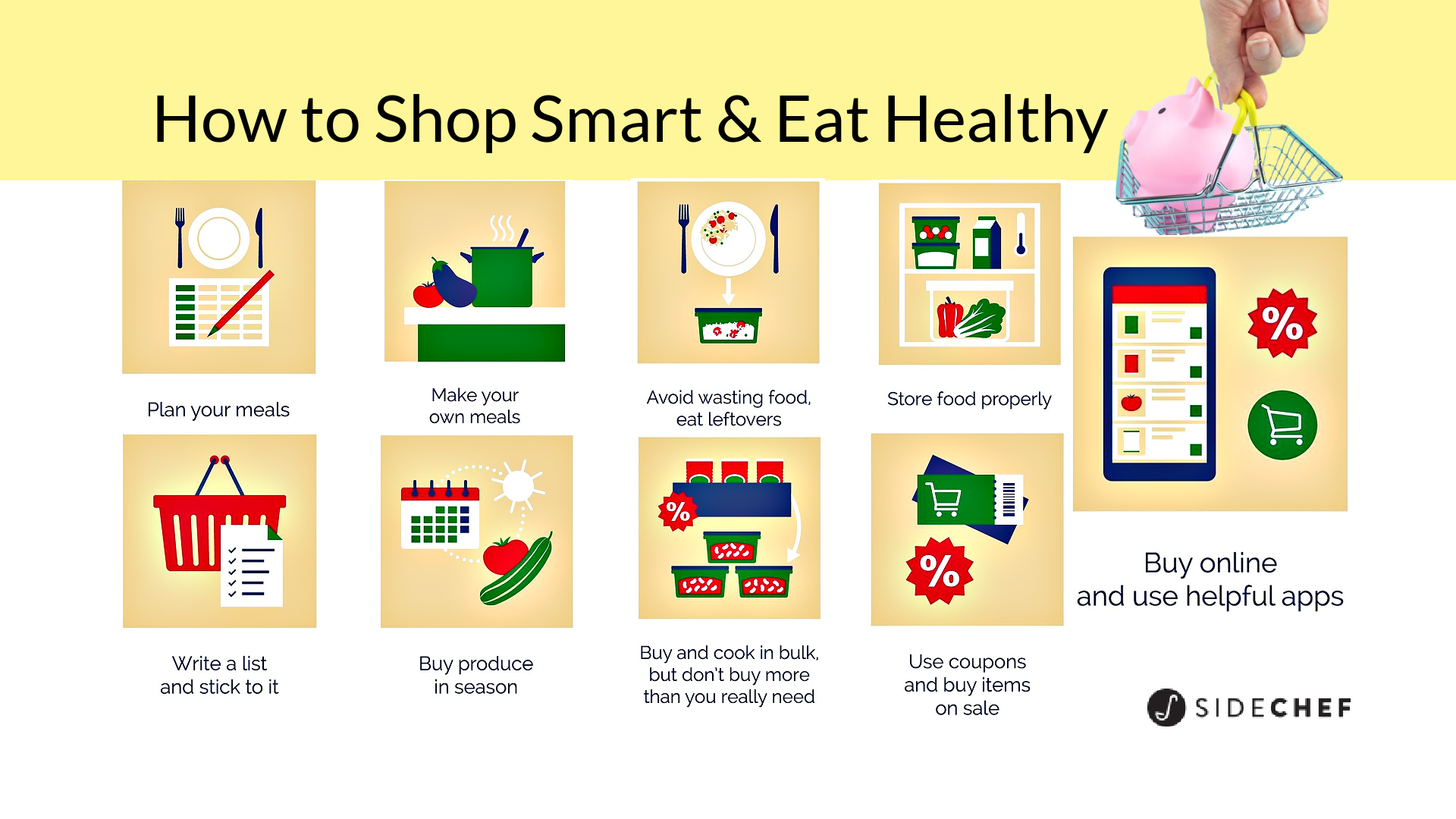Living a healthy lifestyle is important to me, but it can sometimes feel challenging when you’re on a tight budget. As someone who has navigated the world of healthy eating on a limited income, I’ve learned a few tips and tricks along the way that I want to share with you. In this blog post, I will discuss smart grocery shopping strategies that will help you eat nutritious meals without breaking the bank.
First and foremost, my biggest piece of advice is to make a meal plan before you hit the grocery store. Taking the time to plan out your meals for the week not only saves you money, but it also ensures that you’re making healthier choices. Start by making a list of the meals you want to prepare, and then write down all the ingredients needed for each recipe. This will help you avoid impulse buys and reduce food waste.
When it comes to grocery shopping, never go on an empty stomach. Trust me, I’ve made that mistake before, and it always leads to an overflowing cart and unnecessary purchases. Shopping while hungry can also make you more susceptible to choosing unhealthy, processed foods. Eat a balanced meal or snack before heading to the store so that you can stay focused on your grocery list and make smarter choices.
Another strategy for healthy eating on a budget is to buy in bulk whenever possible. Many stores offer discounts for buying larger quantities of certain items, such as rice, beans, and oats. These staple ingredients are not only affordable, but they are also versatile and nutritious. Buying in bulk allows you to save money in the long run and ensures that you always have healthy options on hand.
One of the keys to successful grocery shopping is to prioritize fresh, whole foods over processed ones. While it may be tempting to opt for convenience foods, they tend to be more expensive and less healthy. Instead, focus on purchasing fruits, vegetables, lean proteins, and whole grains. These foods are not only nutrient-dense but also tend to be more affordable when compared to pre-packaged or ready-to-eat meals.
When it comes to buying produce, I’ve found that shopping in season is more cost-effective. Seasonal fruits and vegetables are not only tastier, but they are often available at lower prices. Scan the weekly circulars or visit your local farmers market to see what’s in season and plan your meals around those items. Not only will you save money, but you’ll also be supporting local farmers in your community.
Another way to cut down on your grocery bill is to take advantage of sales and coupons. Keep an eye out for weekly promotions, two-for-one deals, or discounts on your favorite healthy products. Signing up for loyalty cards at supermarkets can also help you save money in the long run. Additionally, consider using digital coupons or downloading apps that offer rebates or cashback on certain items.
In order to stick to your budget, it’s important to resist the urge to buy unnecessary or unhealthy snacks. Instead, focus on buying ingredients and preparing your own snacks at home. By making your own granola bars, fruit salads, or vegetable sticks, you not only have control over the quality of the ingredients but also save money in the process. Investing in a few reusable containers can also make packing snacks more convenient and eco-friendly.
Lastly, don’t underestimate the power of leftovers. Cook larger batches of meals and plan to have leftovers for lunches or dinners the next day. This not only saves you time but also allows you to stretch your grocery budget further. Get creative with repurposing your leftovers into new dishes to avoid food monotony.
Eating healthy on a budget may require a little extra time and planning, but it is entirely possible. By making a meal plan, buying in bulk, prioritizing fresh whole foods, shopping in season, and taking advantage of sales and coupons, you can eat nutritious meals without breaking the bank. Plus, by preparing your own snacks and making use of leftovers, you’ll not only save money but also reduce food waste. Remember, healthy eating doesn’t have to be expensive – it’s all about making smart choices and finding the right balance. So, go ahead and stock up your pantry with affordable, nutrient-packed foods, and embark on your journey to a healthier you.
